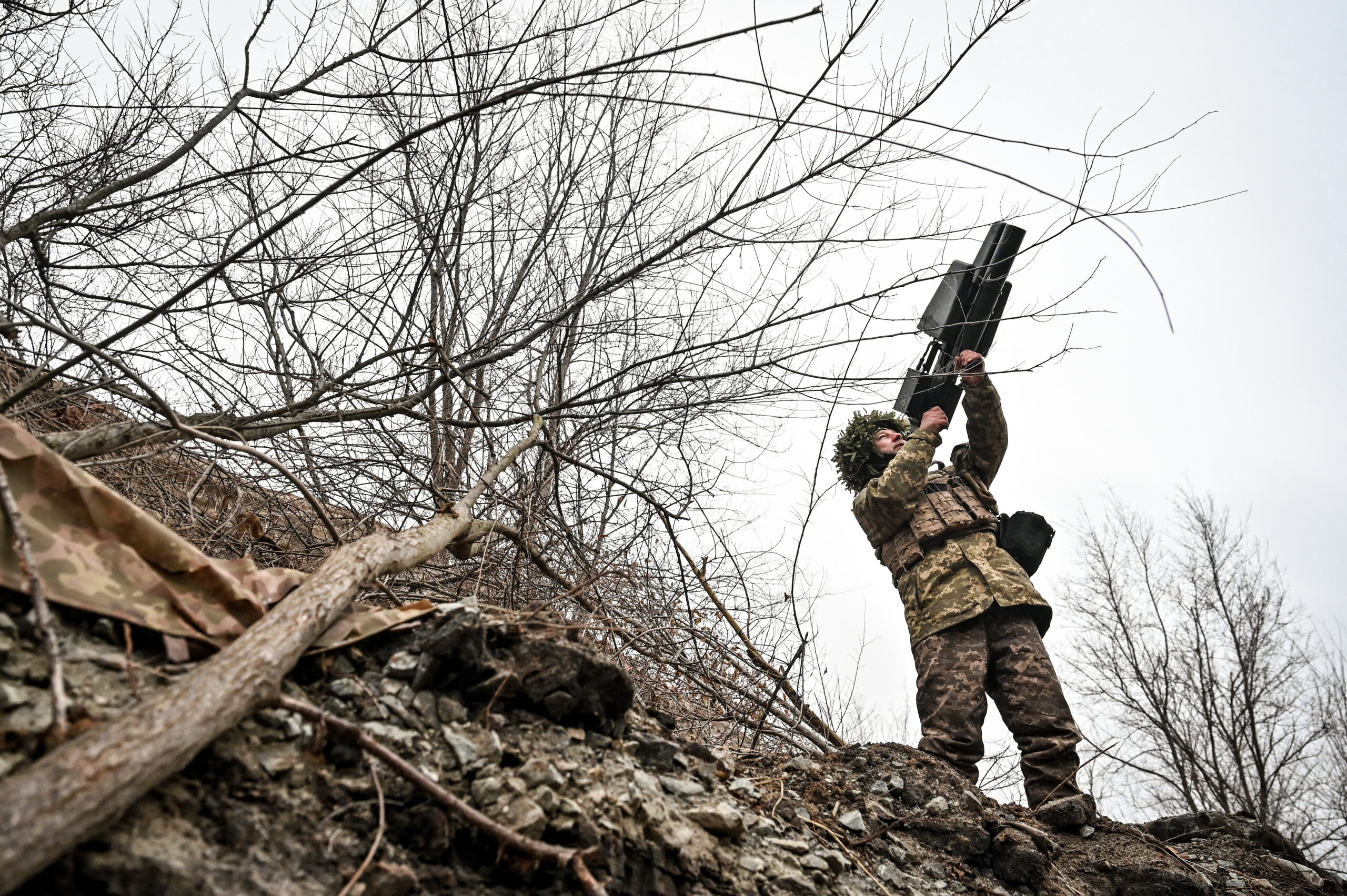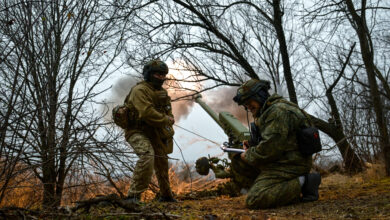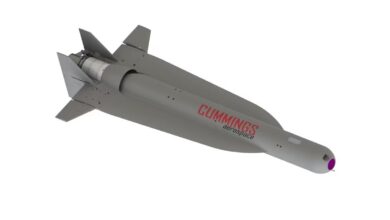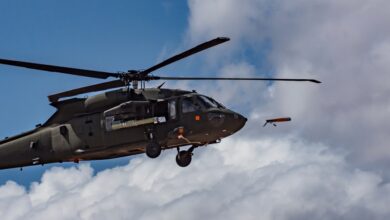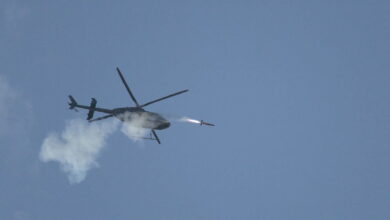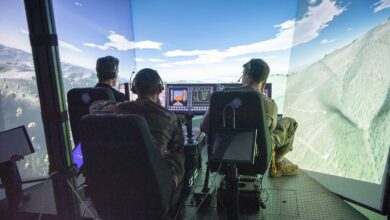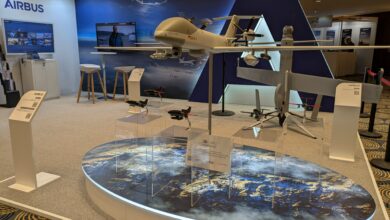NATO Takes Ukraine Lessons Into Europe’s Top Air Defense Drills
NATO commanders said they were drawing on lessons learned in the drone war over Ukraine to conduct Europe’s largest air defense exercise that ends in the Netherlands on Wednesday.
New alliance members Sweden and Finland took part for the first time in “Joint Project Optic Windmill,” a biennial 10-day virtual exercise involving 15 states to test NATO’s response to missile and drone attacks.
“We’ve never encountered the number of threats that is now being seen on the battlefield,” said commanding officer Brigadier-General Peter Gielen.
“We learned from the Ukrainians how they act on that… and there is special attention being paid to drones in this exercise,” Gielen told AFP on Tuesday at an air base in the southern Netherlands.
The Iranian-style Shahed exploding drone Moscow has deployed throughout its Ukraine campaign was of particular focus — and incorporated in the training, Gielen said.
Military officers who asked not to be identified for security reasons told AFP this included aspects like tracking the drones’ flight patterns towards a target.
Information from the Ukrainian theater “helps us a lot because it’s what you need to be able to train your own personnel to react against those kinds of threats,” Gielen said.
“So we follow what’s going on in Ukraine very closely… getting information out of that and trying to bring that as fast as we can into exercises like this,” he said.
Around 700 soldiers participated in total, including from Britain and the United States.
During the drill, soldiers dealt with a changing scenario from peace to a full-scale war, as well as with chemical, biological, radiological, and nuclear threats.
One of the exercise’s main aims was for air defenders “to integrate all technology and systems as a whole, to counter any threats better than any single system can,” the Dutch Defense Ministry said.
The exercise comes in the wake of the shock US policy shift in ties with Europe after President Donald Trump questioned whether the United States should continue its central role in NATO.
Gielen said the shift served as a “wake-up call for Europe,” adding that “we have to invest more in the military.”
“If we then invest in military, we certainly should invest also in air defense,” he said.

